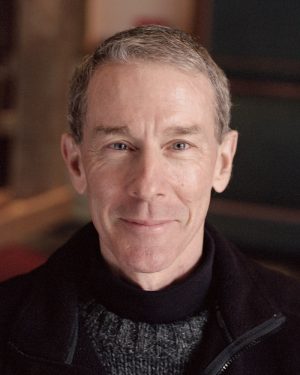Dharma Ocean Foundation Explains The Politics of Ultimate Identity in Vajrayana Buddhism
Branded Content by Cosmic Press
 This is excerpted from a talk, The Politics of Ultimate Identity in Vajrayana Meditation, by Dr. Reggie Ray, Spiritual Director of the Dharma Ocean Foundation, March 23, 2021, given at the Blazing Mountain Retreat Center in Crestone, CO. Dr. Ray is the author of The Practice of Pure Awareness, available from Shambhala Publications.
This is excerpted from a talk, The Politics of Ultimate Identity in Vajrayana Meditation, by Dr. Reggie Ray, Spiritual Director of the Dharma Ocean Foundation, March 23, 2021, given at the Blazing Mountain Retreat Center in Crestone, CO. Dr. Ray is the author of The Practice of Pure Awareness, available from Shambhala Publications.
In the world today, we have a lot of problems. We have the ecological situation, the degradation of the environment we’ve lived in for six million years, as our species evolved. We have the tremendous social disruption caused when the extremely wealthy and the extremely poor are separated from one another even as we speak.
And we have the social chaos that results when people from one race can’t understand or appreciate or even accept people from other races. People misjudge others of different political persuasions. People demonize each other and are in endless conflict and struggle. But I feel another crisis is even more terrifying, and I would call that the crisis of identity. We, as human beings, in the world that we live in no longer know who we are.
Identity has always been an essential part of the human journey. When people have an identity, a sense of who they are, a sense of where they belong within the totality, it brings a feeling of being at home, being comfortable, being secure, and oriented within the universe. Without an identity, we don’t know who we are. We don’t know what our life is for. So we believe we have to make everything up.
Folks who know something about traditional cultures understand who we have always been connected to where we live. When you live in a place over a long period, you begin to sense the land’s sacredness, and the world is experienced as a living, intelligent, sacred other. And this is true both in pre-agricultural and post-agricultural times until the industrial revolution and the technological era.
Identity has always been bound up with a place and with our human relationships. I am who I am because of the web of associations of the people that I love and care about. Identity has also been bound up with work, what we do. Historically, human beings have struggled to survive, raise families, care for those they love, farm, produce crafts, whatever it might be. And those occupations often endured for a lifetime, and we became masters.
Much of that has fallen away, those things that brought a sense of identity, what we would call a sense of a healthy ego, or “self.” They gave us meaning and purpose, and that is how it’s been for human beings as far back as we know. But it’s all fallen apart now over the last two centuries, especially the last 20 or 30 years since the acceleration of technology and the world of the internet — this collapse of identity has become more extreme.
We’re grasping for some identity. A considerable effort is going into people seeking identity with their gender, race, nationality, language groups, age groups, health groups. If we have any abnormal health situation, we try to find a community with people who share that condition. We’re not embedded within an organic community anymore.
The Search for Home
For many, the default is to go on the internet and look for things they identify with, trying to find other people that share our situation. We conduct our relationships, especially since COVID kicked in, more and more virtually. People get married sometimes based on just email exchanges.
These things are attempts to solve a deeply human problem, the problem of feeling we don’t belong anywhere — but it doesn’t work. It’s a reflection of a deep human need, but it’s not working. The more we go in that direction, the more fragmented we become as people — the more we struggle with trying to see where we fit in and understanding what our life is for.
Some spiritual teachers will say, “You don’t need an identity. You don’t need an ego. Let’s get rid of identity altogether.” The Buddhism of Tibet does not agree with that at all. The Tibetan Buddhism approach is that we do have an identity — it’s just not the one that we construct out of our thoughts and ideas and opinions. This identity is called the “natural state,” which the Buddha said is within. If we’re looking for a solution to the problem of identity, we’re not going to find it by looking outside us. We’re not going to see it in our group, family, or community because those identities are socially constructed. They’re made up for good reasons, but they’re not real. It can only be found within.
Begin Within
Tibetan Buddhism takes this teaching to its ultimate conclusion, saying that we must make a journey to discover to meet our own most profound nature. The way we make that journey is through the path of meditation. This type of meditation might be slightly different from other methods you’ve heard about. In Tibetan Buddhist meditation, we pay attention to our experience. We sit down, follow our breath, pay attention to our body, and begin to feel into our experience. We look deeply into what we experience moment by moment.
We do that as a somatic practice because when we sit and think about a problem, we’re not getting anywhere, and that’s often what we do when we meditate. Instead, we pay attention to the place in us where direct, naked experience, feelings, intuitions, and felt sense happens, which is in the body. We begin to realize that slowly, we are looking into the depths of something that almost appears limitless. When we look into our personal human experience at this moment, not what we think we’re experiencing, not knowledge that has been filtered through the mechanism of the thinking mind. Still, the direct, naked experience of our being, we begin to realize we’re looking into a bottomless ocean.
There’s something incredibly reassuring when we do that; we begin to feel that we’re touching something real. And it has a different feeling from when we’re thinking or when we’re on the internet or when we’re texting people. It’s a feeling of tangible, warm, open reality. And we feel like we’re coming home to something significant.
There are many things in our experience, especially in the modern world, that are so painful that we would prefer to look away. But when we look, something extraordinary begins to happen. We look into our experience, and things open. There’s a depth that slowly begins to emerge.
Discovering Vastness
At a certain point, we feel that we’re actually in a vast starry sky where the predominant feeling is an incredible amount of space and openness, and freedom. And within that vastness, there are all these stars and planets and supernovae and galaxies. They’re happening within a vast space, and that vast space is our essential nature.
When we perceive that depth and that infinitude, we realize that’s actually who we are, out of that infinite, where our experience arises moment by moment. There’s a sense of tremendous freedom and joy. We have come home to our essential being.
And though we are modern people, and the Buddha lived three millennia ago, despite all these differences, we begin to see for ourselves that this is something all of us share as humans, and this is who we are. It’s so open. Yes. You can say it’s so unprotected. That’s true. But when you touch that part of yourself, you’re feeling something infinite and eternal, and nothing that happens can compromise that. There’s no need for protection because we include the totality, and there’s room within our state of being for everything.
In very early texts, the Buddha said that there is a place that is unborn and unconditioned, infinite and free within us. When we find that place, we discover that that’s who we indeed are. It’s the basis of ourselves, and it’s the basis of everything that is. This is not some lofty spiritual teaching; it’s the nature of who we are as humans. If we are distressed and struggling, if we feel perpetually dissatisfied with our answers, that’s a sign of our deep intelligence and integrity. We long to find out who we are, which is very real and very authentic and very sacred.
About Dharma Ocean Foundation
Dharma Ocean Foundation is a global educational foundation in Chögyam Trungpa Rinpoche’s lineage, focusing on somatic meditation as a way to serve students of any secular or religious discipline who are genuinely pursuing their spiritual awakening. Dharma Ocean offers online courses, study resources, and guided meditation. To learn more, visit the Dharma Ocean website.
Branded content furnished by our promotional partners. The Daily Sundial editorial staff is not involved in its production. Content does not reflect the views or opinions of the editorial staff.




